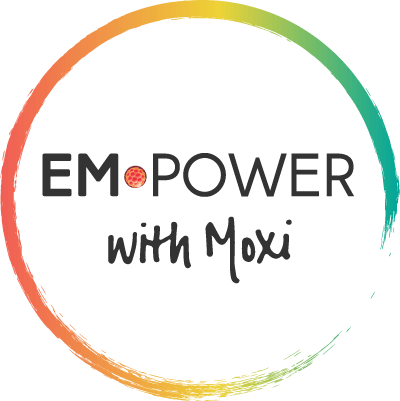Meet Candace as she shares her experience as a Black woman navigating ART
Can you share a little bit about your experience as a fertility patient?
As a Black woman navigating infertility, I have to say that it was daunting. I was navigating through a medical system that has a proven history of bias and preconceived notions against BIPOC women. It can take an average of 6-12 months longer for Black women to be diagnosed with infertility. I had a long history of health disparities and lack of treatment for my fibroids and endometriosis. Fourteen years ago, you didn't see any women of color that were open about their infertility experience so it was especially isolating to feel like I was the only one. The narrative of what infertility looked like didn't look like me. It was then and still to a certain extent it is now a white, economically privileged hetero-normative space. While that is the narrative, the reality is that Black women are twice as likely to be infertile. The stereotype is that we can't stop having babies, so the cold truth is that none of that is intersecting. Culturally in many communities of color, infertility is just something you don’t acknowledge or speak openly about. Above all it was lonely and isolating. I spent 4 years in a Beverly Hills Clinic and never saw another patient that looked like me. Since I could never see myself reflected in the infertility experience, I began to internalize that my experience didn't count. That was soul crushing on many levels. I am so happy that now many women of color have come to share openly about their experience with infertility.
What was it like for you when you began to explore egg donation?
When I began to explore egg donation, it was hard to see that there were pages and pages of potential donors; hundreds if not thousands on the nationwide database. Out of all the available donors, seven were women of color. Three donors were black and they each had a waiting list. My egg donor ended up being Filipino. She had physical traits that were close to mine. I chose her because out of incredible frustration and a sense of defeat, I just said my new standard for a donor was brown-any iteration of brown. Choosing an egg donor represented for me not just a loss of biology, but a loss of racial identity.
Why do you think there are such limited options for Black individuals and couples in donor conception and embryo donation?
I think there are limited options for Black individuals and couples in donor conception and embryo donation for many reasons. First there are huge huge cultural stereotypes and stigmas to overcome from all parties. There is a pervading sense of shame and silence, religious objections and a historical mistrust of medical establishments. A big blind spot is that there is a lack of outreach and normalization. As we don't tend to see a lot of stories normalizing egg or embryo donation, there is little to no existing historical context for how these families are formed. This leads to the limited availability of donors. I also wonder where agencies and clinics are looking for diverse donors, and how sensitive are these agencies once they do reach out? If you are looking for young, healthy college aged-donors, are you extending outreach to HBCUs? In that outreach are you being mindful and sensitive of the history of medical experimentation done to Black women? Finally, the cost issue is a huge impediment to moving forward.
What can professionals, clinics and agencies do to better support the needs of people of color?
Professionals, clinics and agencies don't have to do a lot to make a big difference. One of the easiest first steps is to be sure that your marketing, promotional materials and language are incorporating images that are inclusive and diverse. Making sure your staff is equally diverse is a big step in making sure that everyone that walks through your doors feels safe and supported. Your staff should also have training and sensitivity for working with marginalized groups. Have some type of counseling, literature and education specific to the needs of the diverse communities. Most important, truly listen to patient needs, don't assume that you know a one-size fits all solution.
What advice or words of support would you give others who may relate to your experience as they navigate the world of gamete or embryo donation?
My best advice to anyone navigating the complex world of gamete and embryo donation would be to learn how to get very comfortable in advocating for yourself. Learn not just to use your voice BUT to trust your voice. LOVE YOURSELF and allow yourself time to feel all your feelings. Anger, frustration, sadness, joy and everything in between; it is all ok to feel. None of this is easy or fair, and none of this is your fault. Sometimes getting pregnant with all the technology and science still comes down to just dumb luck. You may feel like you are alone but you are not. Run, don't walk to find a community that understands you and is going through the same things. You need a strong support system and you need to know that you are loved. I guess my final words of advice is not to let your infertility journey rob you of time. Don't stop living your best life while trying to get pregnant.
